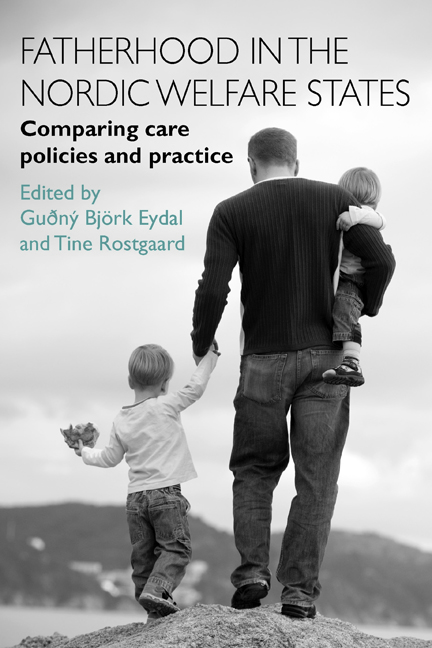Book contents
- Frontmatter
- Contents
- List of tables and figures
- Notes on contributors
- Acknowledgements
- one Introduction
- Theme 1 Fathers, families and family policies
- Theme 2 Fathers in everyday life – culture, work and care
- Theme 3 Constructing fatherhood in different family settings
- Theme 4 Caring fathers and paid parental leave policies
- Theme 5 International reflections on findings
- Conclusions
- Index
twelve - The long-term impacts of early paternal involvement in childcare in Denmark: what happens after nuclear family dissolution
Published online by Cambridge University Press: 04 March 2022
- Frontmatter
- Contents
- List of tables and figures
- Notes on contributors
- Acknowledgements
- one Introduction
- Theme 1 Fathers, families and family policies
- Theme 2 Fathers in everyday life – culture, work and care
- Theme 3 Constructing fatherhood in different family settings
- Theme 4 Caring fathers and paid parental leave policies
- Theme 5 International reflections on findings
- Conclusions
- Index
Summary
Introduction
While earlier theories assumed that a dual-earner family model would tend to destabilise the nuclear family institution (for example, resulting in fewer children) (Parsons and Bales, 1956; Becker, 1981), recent studies find a positive correlation between female labour market participation and the desire to have children in the Nordic countries. This is often said to be due to generous family policies providing women with the opportunity to combine motherhood with a career (Andersson et al, 2009; Esping-Andersen, 2009). One must also assume, however, that the success of such a family model depends on the internal division of labour in the individual household. Thus, studies suggest that approximate gender equality in the families and fathers taking paternity leave appear to be positively associated with continued childbearing (Oláh, 2003; Duvander and Andersson, 2006).
Trends towards equal parenting are among the key characteristics in the (late) modern family in the Nordic countries. As dual-earner families, both parents contribute to the state and household economy through labour force participation, and both share in the household tasks and childcare at home. Compared to other European fathers, Nordic fathers spend more time on childcare tasks, even if the Nordic mothers still provide most of the care in the home while the fathers are still spending more hours at work (Bonke, 2009). Scholars have observed the emergence of a father role characterised by increased presence, commitment to and involvement in childcare (see, for example, Plantin, 2001; see also Chapter Eight, this volume). Family policies allowing (or even encouraging) fathers to take leave for childbirth and childcare possibly support this development (see also Chapters Six, Thirteen, Fifteen and Sixteen, this volume).
Similarly, in another corner of welfare policy, Nordic family law has moved towards increased gender neutrality over the past 15-20 years by equalising the opportunities available to mothers and fathers to provide care (see also Chapter Three, this volume). Similar to the other Nordic countries, the Danish legislation pertaining to parental responsibility assumes joint legal custody to be the normal point of departure for separated parents, even if they do not agree. Moreover, family law enables the legal authorities to determine that a child is to reside for equal amounts of time in each of the parent's households (equal, shared residence).
- Type
- Chapter
- Information
- Fatherhood in the Nordic Welfare StatesComparing Care Policies and Practice, pp. 251 - 274Publisher: Bristol University PressPrint publication year: 2014



